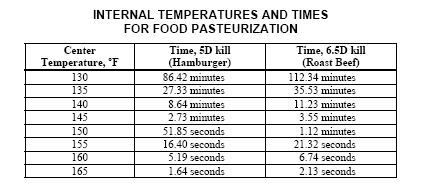Does bottling kill/inhibit a lacto infection? Or does this fit the brewer's bomb-making blueprints to a T?
If you notice/suspect/even confirm an early lacto infection, will bottling it prevent growth/kill it? Ie having it in an airtight, c02-filled environment. Or will the lacto carry on its day-to-day jollies until the bottle goes kaboom (or at least the beer goes sour and gushy)?
If you notice/suspect/even confirm an early lacto infection, will bottling it prevent growth/kill it? Ie having it in an airtight, c02-filled environment. Or will the lacto carry on its day-to-day jollies until the bottle goes kaboom (or at least the beer goes sour and gushy)?




